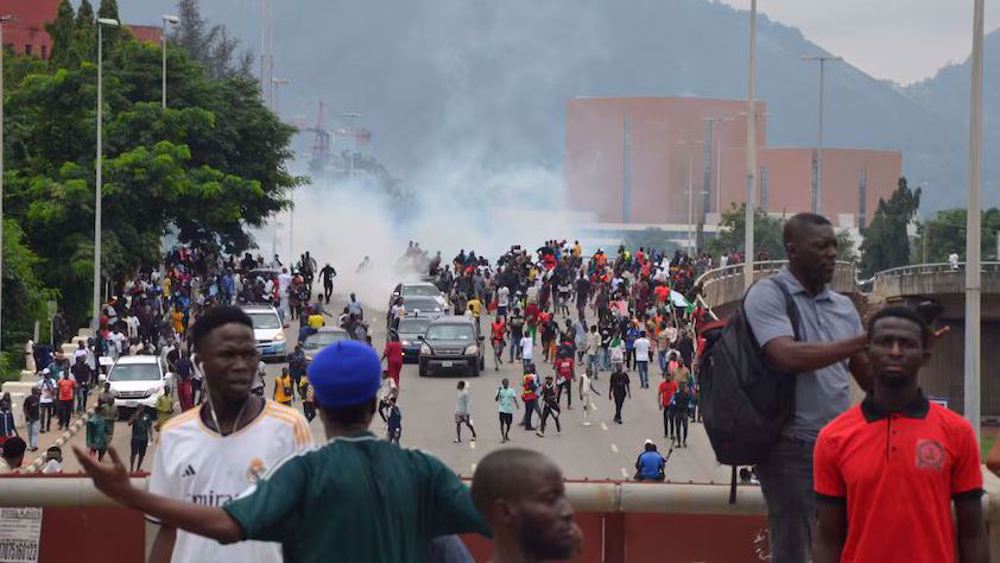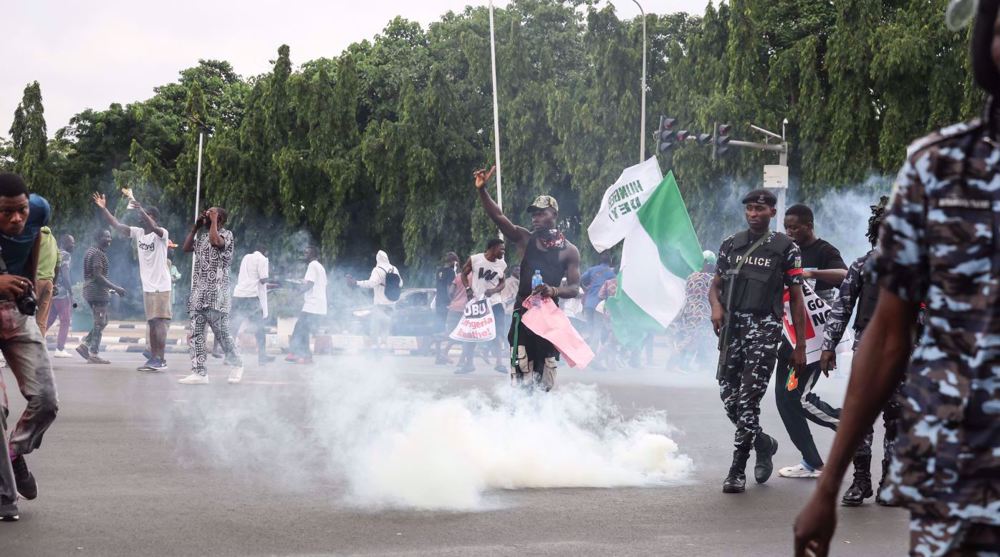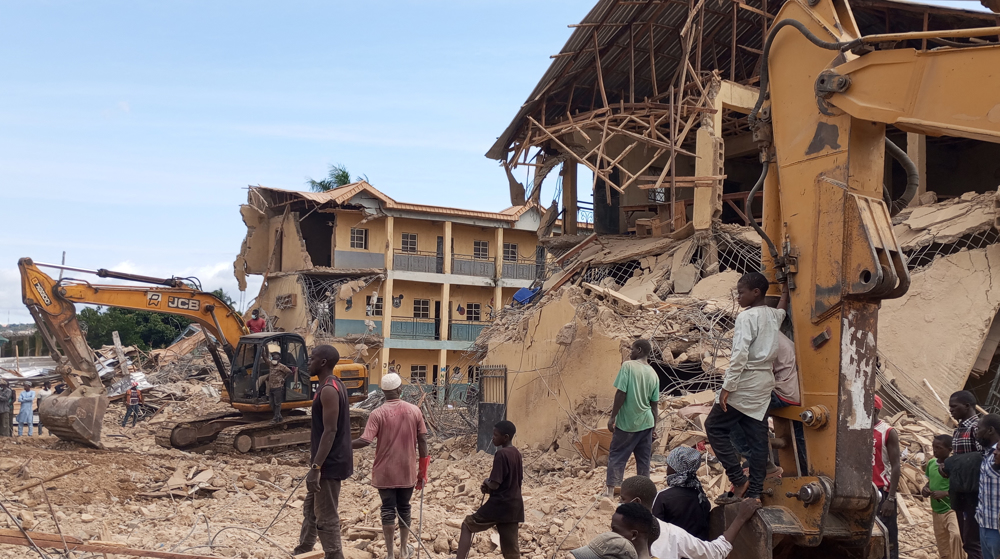Nigerian gangs reportedly kidnap kids on behalf of Boko Haram
Boko Haram recruited three local gangs in northwest Nigeria to kidnap hundreds of schoolboys on its behalf, security and local sources said Wednesday.
The militant group has claimed responsibility for Friday's attack, which targeted a secondary school in the town of Kankara, in Katsina state.
But sources told AFP the operation was carried out on Boko Haram's orders by a notorious local gangster called Awwalun Daudawa.
The 43-year-old worked in collaboration with Idi Minorti and Dankarami, two other crime chiefs with strong local followings, they said.
Criminal gangs, known as bandits, have terrorized communities in northwest Nigeria for years, and experts had recently warned of attempts by militants to forge an alliance with them.
Daudawa "was an armed robber and a cattle rustler before he turned to gun-running, bringing in weapons from Libya, where he had received training, and selling them to bandits," said a security source.
"Over time, he forged an alliance with Boko Haram and became their gunrunner, taking weapons the group seizes from the Nigerian security forces in raids and ambushes and selling them to bandits for a cut."
The source added: "Awwalun Daudawa was spotted in the forest in the Kankara area where he recently relocated and there were reports that he was planning something but it was not clear what it was."
Another source with intimate knowledge of "bandit" activities in Katsina and Zamfara states said: "From available information, Awwalun Daudawa was ordered by Abubakar Shekau to kidnap the schoolboys and he enlisted the help of Idi Minorti and Dankarami."
"After the children were taken, they went across the border into Zamfara state and split them among different gangs 'for safe keeping'. And some of the gangs have been in touch with the authorities for the release of the boys."
The attack occurred hundreds of kilometres (miles) from Boko Haram's stronghold in northeast Nigeria, where it launched a brutal insurgency a decade ago.
The militants made a claim of responsibility in a four-minute audio, sent to AFP through the same channel as previous messages from the group.
"I am Abubakar Shekau and our brothers are behind the kidnapping in Katsina," said the voice in the recording, resembling that of the elusive Boko Haram leader.

'Contacts'
Shekau was behind the 2014 abduction of 276 schoolgirls in Chibok that sparked global outrage, but another source said that the two incidents were not immediately comparable.
"There is an ongoing peace pact between bandits and (the) Zamfara state government which the bandits don't want to breach. They have been under intense pressure to release the boys," the source said.
"This situation makes the Kankara abduction different from that of Chibok schoolgirls who were directly in the custody of Boko Haram. This time, the bandits who are keeping the children hold the ace, not Shekau."
The governor of Katsina state, Aminu Bello Masari, said late Monday that the abductors "have made contacts with the government."
"Talks are ongoing to ensure their safety and return to their respective families," he said on Twitter.
The government has not immediately reacted to Boko Haram's claim or confirmed its authenticity, and the number of missing students remains unclear -- 320 or 333, according to two accounts by officials, while locals in Kankara put it at more than 500.
Nigeria to block unregistered SIMs after two weeks
Separately, Nigeria has given telecoms operators two weeks to block subscribers who fail to link their mobile SIM cards with national identity numbers, angering many.
Nigerians must have a national identity number as part of measures the government says will help tackle insecurity in the country and build a unified database.
The Nigerian Communications Commission in a statement late Tuesday directed operators to "require all their subscribers to provide a valid national identification number to update SIM registration records."
The commission said the decision was taken by all with a stake in the question, including the telecommunications companies that serve 203 million subscribers.
It gave operators two weeks, from December 16 to December 30, to comply.
"After the deadline, all SIMs without national identification numbers are to be blocked from the networks," it warned, adding that it would not hesitate to revoke licenses.
Industry analysts say the two-week deadline is not realistic.
"The timeline is too short. Although the government's intention is to tackle insecurity which is a number one problem of Nigeria, they are doing it the wrong way," Sola Oni of Sofunix Invesment told AFP.
The telecoms companies need time to properly verify subscribers affected by the directive, he added.
The leading operators in Nigeria are South Africa's giant MTN, Airtel, Etisalat and Global Communications.
In 2015, MTN was sanctioned after failing to disconnect 5.1 million subscribers -- amid concerns the lines were being used by Boko Haram insurgents.
Africa's biggest wireless operator was initially fined 3.2 billion euros ($3.9 billion) but after series of negotiations, the fine was reduced to 1.2 billion.
(Source: AFP)
Israeli regime strikes buildings in Lebanon’s south
Suicides among Israeli forces surge amid Gaza war
Gen. Soleimani turned threats into opportunities and fortified resistance axis
Houthi: General Soleimani thwarted US conspiracies in West Asia
Islamic Jihad prevents Israeli captive from taking own life
Pezeshkian: We will continue path of Gen. Soleimani with power
Israel forces make incursion into Lebanese town, torch homes
Israeli settlers raid al-Aqsa Mosque amid restrictions on Muslims












 This makes it easy to access the Press TV website
This makes it easy to access the Press TV website